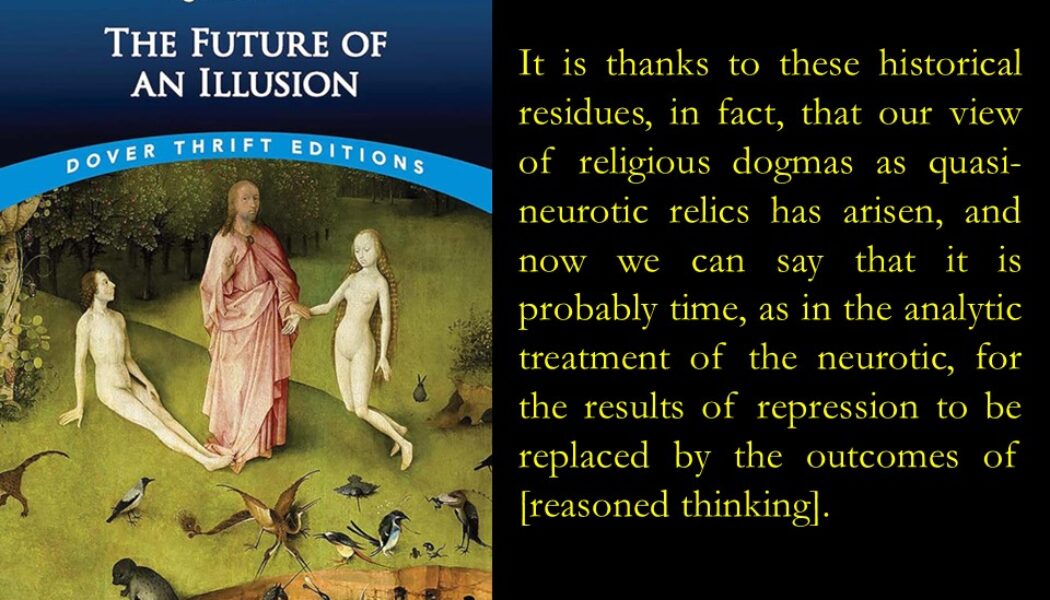In his influential book, God Delusion (2006), the evolutionary biologist Richard Dawkins
declared the belief in God as a “delusion”, echoing what Sigmund Freud did in his early 20th
century milestone The Future of Illusion (1927). DSM-V, the diagnostic and statistical manual of
mental disorders, describes a “delusional disorder” as “a false belief based on an incorrect
reference about the external reality.” What Dawkins does in his book exactly fits into this
description: God as an incorrect reference about material reality.
Dawkins indeed considers religion as the delusion of prophets’ beliefs, fictions, perceptions, and
behaviors, divorced from reality, stemming from a wounded grasp on objective truth, let alone
science. However, when large groups of followers collectively share the same delusional beliefs,
in Dawkins’ view, it often takes on the mantle of religion. That, of course, is not confined simply
to monotheistic religions. All religions somehow provide their adherents with ethical
prescriptions and even refuge from other delusions as well. Religions promise shelters from the
storm of existing in the world.
What may appear irrational or nonsensical from an outside perspective becomes a profound
spiritual truth for the faithful adherents of all religions. Societal norms and institutions lend
credibility and structure to these shared illusions, lending them legitimate claims to delusive
truths that an individual’s isolated delusions could never attain. Customs, rituals, and dogmas
become deeply ingrained, perpetuating the shared psychosis across generations. Questioning the
fundamental tenets of widespread religious belief systems are often met with ostracization,
ridicule, targeting for violence, for the collective delusion is fiercely guarded. The irony remains
that one’s insanity is frequently upheld as sacred truth when manifested in the beliefs and
religious behaviors. Religious delusions and the unsecular power structures that reinforce them
illustrate the troubles with prioritizing consensus over objective reality.
In Dawkins’ perspective, countless gods and deities have been worshiped by various cultures and
civilizations, each with their own unique attributes, origin stories, and systems of belief. With the
advance of the human collective consciousness, the vast majority of these once-revered gods
have fallen by the wayside, relegated to mythology and folklore. Just as one might view the gods
of ancient Greece or Rome with a sense of historical curiosity rather than religious devotion, the
same can be said for the myriad other deities that have captivated the human imagination over
the millennia.
In that sense, what Dawkins means by “we are all atheists” in the book is that no one believes in
the divinities of these gods any more. He then posits that the final step in this process of religious
skepticism is to extend that same level of disbelief to the one god that still commands faith – the
Monotheist God, as worshiped in Judaism, Christianity, and Islam. In this perspective, the
“atheist” refuses to grant any more credence to the God than to the pantheons of ancient
civilizations, challenging the idea of religious exceptionalism, asking why the God in
monotheism should be an exception to the inspection and doubt applied to the gods and the
deities of the ancient polytheistic religions.










